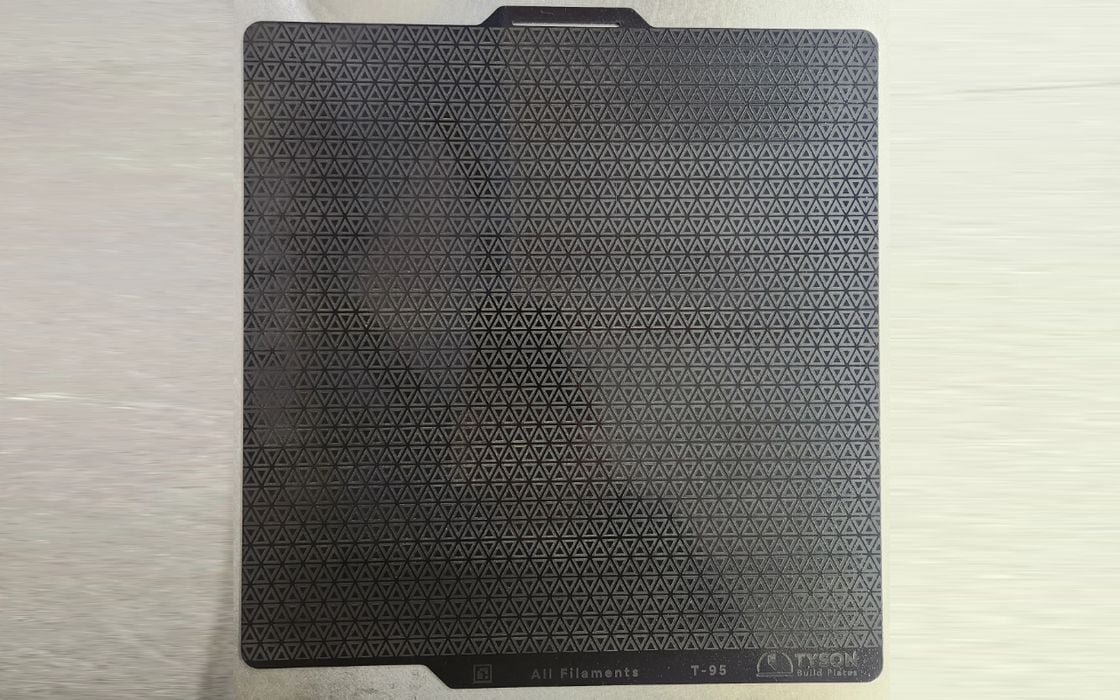
I’m looking at a supplier of build plates, Tyson Build Plates.
The US-based manufacturer supplies a range of print plates for FFF desktop 3D printers, including:
- Bambu Lab X1, P1, A1
- Creality K1 Max
- Prusa MK3, MK4
- QIDI PLUS4, Q1-PRO
- Voron 300mm
These plate options are quite interesting. They all are made from tempered 1095 spring steel, and have their proprietary Tyson coating.
The coating is billed as “universal”, as the plates can handle all of these materials:
- PLA
- ABS
- TPU
- PET
- PA
- PPA
- PETG
- PPS
- PSU
- PPSU
- PEI
- PEEK
- PEKK
- PES
- LCP
The plates can be heated up to a whopping 230°C, which is far beyond the desktop 3D printers I typically use. This means they might be usable in high-temperature machines, although none are mentioned in their product list.
Tyson Build Plates explained that they do not handle TPI material. They also provide extensive charts showing the required temperatures for printing all of these materials, along with the correct release temperatures. For those in a hurry, you really should wait until the print plate cools to the release temperature before removing the objects.
Tyson Build Plates explained that they believe their plates are the most durable on the market, and that’s likely due to something in their proprietary coating. Normally, coatings wear off — or are pulled off when people don’t wait for cooldown.
The plates can also be ordered with a laser-etched pattern, including:
- Diamond
- Hexagon
- Interlocked hexagon
- Triangle
- Inverted triangle
It’s also possible to order a custom pattern, whereby you upload an image file that will be etched on the surface.
Plate prices start at US$55-65, depending on the model. Special laser-etched patterns add another US$20, and for custom patterns, it’s an extra US$30.
The pricing might be slightly higher than some other options, but remember that these plates will likely last longer. You just might find these plates less expensive in the long run, especially if you do a lot of 3D printing.
